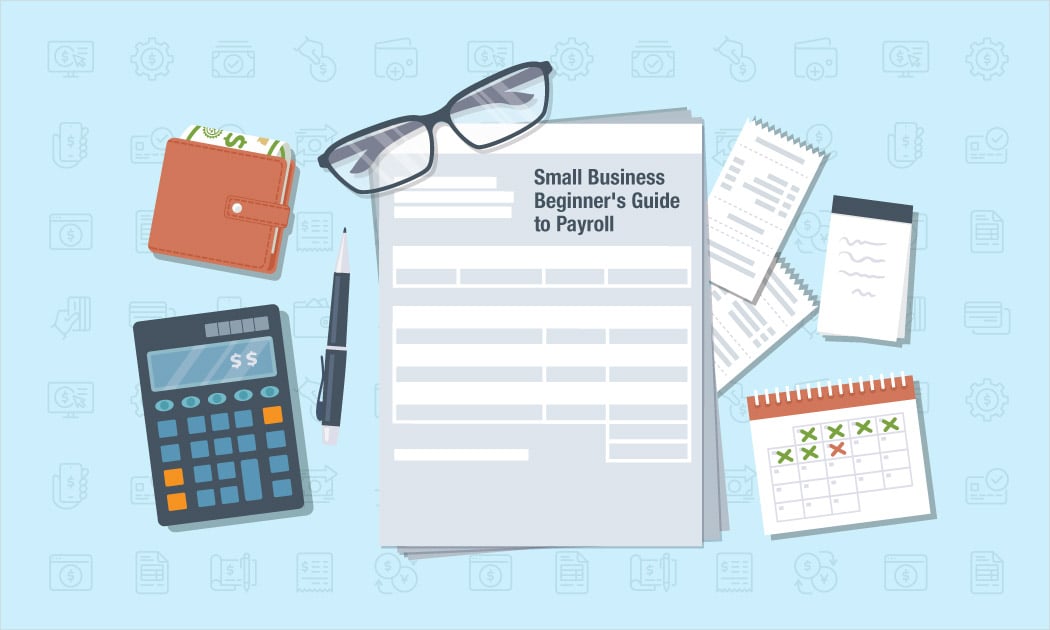The Payroll Blog
News, tips, and advice for small business owners
- Home
- Resources
- Payroll Blog
- Most Common Payroll Mistakes Among New Companies
The Top 5 Most Common Payroll Mistakes Among New Companies
When setting up payroll for your small business the first time, it’s common to feel overwhelmed and make some mistakes.

While mistakes are normal, it’s important to note that some will be easier to fix than others, and can cause more damage to your business if the mistake isn’t corrected immediately. Below you’ll find the top payroll mistakes small business owners make, and the ways to avoid and fix them so you can remain compliant.
Mistake #1 – Misclassifying Employees
Why it’s a problem: It’s important to classify individuals properly. The two most common classifications are :
- Exempt vs. Non-Exempt
- Employee vs. Independent Contractor
When you misclassify individuals, you could potentially affect how much they are getting paid. For example, under the Fair Labor Standards Act, non-exempt employees must be paid at least minimum wage for hours worked and overtime for hours worked over 40 in a workweek. Exempt employees are not eligible for overtime pay. So if you classify an employee as an exempt employee and it is later determined that they should be non-exempt employee you could owe the employee substantial back overtime. Similarly, if you enter into an independent contractor relationship and it is later determined the individual should be classified as an employee, it is likely that you did not withhold payroll taxes properly. There are significant penalties for misclassification.
How to fix it: The first step of the hiring process should be to look at the job description for the position. Determining if the job duties meet the requirements of an exempt classification will help you determine the exempt or non-exempt classification. If the job duties meet the requirements of an exempt position, you will need to ensure that the compensation meets the minimum salary requirement if there is one for the particular exemption.
Before entering an independent contractor arrangement, you’ll want to look at the various laws that define employee status. If you plan to set hours and how the work will be done, the individual will likely be seen as an employee, but if you need somebody for a specific project and they have freedom over how and when it gets done, it may be an independent contractor relationship. Thinking through these employee classifications can help prevent violations and penalties later on.
Mistake #2 – Miscalculating Payroll Taxes
Why it’s a problem: As we touched on above, miscalculating payroll taxes not only means your employees are receiving incorrect paychecks, it also means that you’re likely underpaying necessary taxes to the government.
How to fix it: First, you need to know what payroll taxes you’re responsible for paying as a small business owner. Payroll taxes include FICA taxes, which include Social Security and Medicare taxes, unemployment taxes for federal and potentially state level, and income taxes. From there, you need to understand the tax rates and how much you need to be withholding and paying. Your best resource is the IRS, especially since some of these amounts can change each year. Outside of staying educated, your next line of defense is to work with an accountant or bookkeeper year-round. Either would be able to help you manage payroll and taxes throughout the year, while also being a resource for tax season.
Mistake #3 – Misprocessing Wage Garnishments
Why it’s a problem: While this may not apply to every employee’s payroll, you may find yourself needing to withhold a portion of an individual employee’s paycheck based on government mandates. Wage garnishments include alimony, child support, defaulting on a student loan, unpaid taxes and other consumer debts. When the debt is paid off, you must stop collecting the garnishment and give your employee their full wages.
How to fix it: First, make sure that you act quickly when you receive a government order to withhold wages. It’s your job to ensure your employee’s debt is getting paid off and you can’t ignore this government request. Next, you’ll need to know the exact percentage to withhold. Withholdings vary based on the garnishment, so you don’t want to remove the incorrect amount and have it negatively impact your employee.
Mistake #4 – Paying Bonuses Incorrectly
Why it’s a problem: Bonuses are another thing that likely won’t come up on your regular payroll schedule, but when you do they need to be handled correctly. Bonuses and other monetary gifts for your employees need to be taxed the same as a regular paycheck. When they aren’t, it results in inaccurate calculations of payroll taxes.
How to fix it: Treat any extra payments to your employees the same as a standard paycheck. Withhold the same payroll taxes from this additional paycheck and ensure you’re keeping a record of it.
Mistake #5 – Poor Recordkeeping
Why it’s a problem: It’s hard to keep everything up to Marie Kondo’s standards, but when it comes to your small business, the organization of important documents is going to be key. Poor recordkeeping can lead to a variety of issues, like missed tax deadlines, hiccups at tax season, violations of recordkeeping requirements and employee issues down the road.
How to fix it: Dedicate time at a minimum of once a month to review your records. This includes employee information, tax forms and receipts, and even backing up important digital files for your business. The Small Business Administration has a great guide on recordkeeping. The guide walks small business owners through the various aspects of recordkeeping and why it’s essential to running your business.
Bottom Line
It’s inevitable that mistakes are going to be made, despite your best intentions. After all, it’s always said that you can’t grow without making a few mistakes. While this is all true, there are some that you can avoid when first setting up payroll and can make life easier for you. If the stress of payroll has you down, turning to an online payroll provider can be one way to minimize the mistakes and rest easy that somebody else is helping you out.
Related Blog Posts
View Our Plans and Pricing
Small Business Is Our Business.
This website contains articles posted for informational and educational value. SurePayroll is not responsible for information contained within any of these materials. Any opinions expressed within materials are not necessarily the opinion of, or supported by, SurePayroll. The information in these materials should not be considered legal or accounting advice, and it should not substitute for legal, accounting, and other professional advice where the facts and circumstances warrant. If you require legal or accounting advice or need other professional assistance, you should always consult your licensed attorney, accountant or other tax professional to discuss your particular facts, circumstances and business needs.



